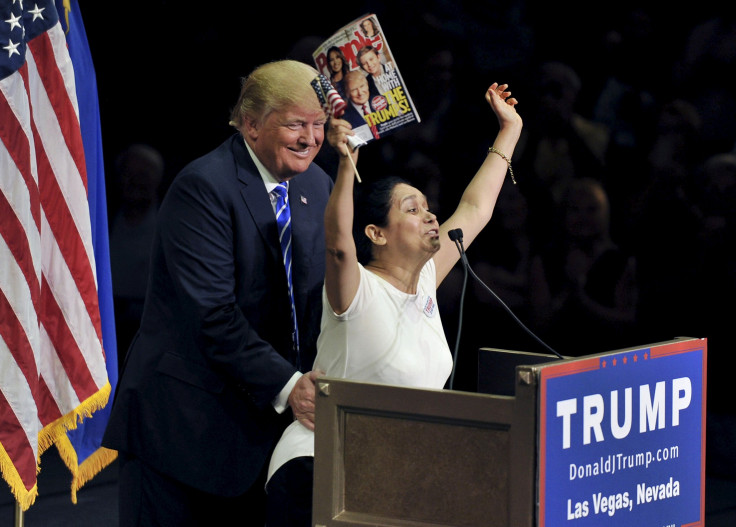
GOP presidential candidate and businessman Donald Trump hasn’t been popular among Latinos, but that’s not likely to hurt him in the Iowa caucuses next week. Despite saying that Latinos love Trump” and that he’s helped many members of the ethnic group by employing them. Latino political organizers say that Trump might be helping them in another way: inspiring Hispanics to vote out of anger over his past comments about immigrants, particularly Mexicans and Mexican-Americans ("When Mexico sends its people, they're not sending their best [...] They're bringing drugs. They're bringing crime. They're rapists. And some, I assume, are good people.)"
"We want to turn his negativity into a positive for our community," say Joe Enriquez Henry, whose group, the League of United Latin American Citizens, helped organize an anti-Trump themed voter drive in Iowa, according to the LA Times.
In Iowa, Latinos make up only 5 percent of the the population, three times less than they do nationally. They’re also just a blip on the voting roles in New Hampshire and South Carolina. Even fewer Iowa Latinos registered Republicans who might vote in the Feb. 1 primary. Anger against him might be strong, but it’s restricted to a relatively small group of voters.
“Twenty percent of our registered voters are Republican” LULAC event participant Christian Ucles told Iowa Public Radio this week. “Jeb Bush is the one because he understands it. LULAC has [done] outreach to Rubio and Cruz and others. There’s no interest there.”
Marco Rubio and Ted Cruz are Cuban-American. Jeb Bush, whose wife and children are Mexican-American, has employed a sort of compassionate conservatism on immigration and minority issues. So there are at least three candidates on the Iowa ballot that could attract a Hispanic anti-Trump vote.
However the candidate most likely of the three to beat Trump in Iowa is also the least popular among Hispanics. Ted Cruz is in a dead heat with Trump according to Iowa polls. Rubio is a distant third. Cruz has tried to keep his Cuban heritage out of the campaign, though some of his supporters have highlighted his Hispanic heritage. Unlike Bush and Rubio, he doesn’t speak Spanish and he has been less sympathetic to calls for comprehensive immigration reform.
If a Latino anti-Trump political does exist within among GOP voters, it may come into play in later primary states. Take Nevada, where 28 percent of the population is Latino, or Colorado, where 21 percent is Latino. Both are battleground states worth as much or more GOP delegates than Iowa. With the Republican field whittled down, conservative Latinos may be able to rally around a single candidate. Trump, of course, believes that it will be him, especially in Nevada.
The real beneficiary of Trump’s campaign may be Democrats, who have traditionally enjoyed the majority of Latino support, but struggled to register those voters and corral them to the polls. As long as Trump stays in the race, LULAC and other Latino organizations are likely to have an easier time motivating constituents to register.
Perhaps the bigger question is this: will Latinos make it to the ballot box if Trump leaves the race?
© 2025 Latin Times. All rights reserved. Do not reproduce without permission.




